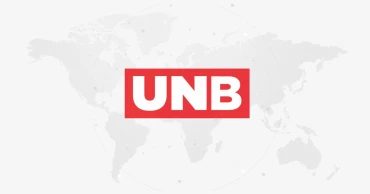IRNA
Iran submits a ‘written response’ in nuclear deal talks
Iran said Tuesday it submitted a “written response” to what has been described as a final roadmap to restore its tattered nuclear deal with world powers.
Iran’s state-run IRNA news agency offered no details on the substance of its response, but suggested that Tehran still wouldn’t take the European Union-mediated proposal, despite warnings there would be no more negotiations.
“The differences are on three issues, in which the United States has expressed its verbal flexibility in two cases, but it should be included in the text,” the IRNA report said. “The third issue is related to guaranteeing the continuation of (the deal), which depends on the realism of the United States.”
Tehran under hard-line President Ebrahim Raisi has repeatedly tried to blame Washington for the delay in reaching an accord. Monday was reported to have been a deadline for Iran’s response.
Nabila Massrali, a spokesperson for the EU on foreign affairs and security policy, told The Associated Press that the EU received Iran’s response on Monday night.
“We are studying it and are consulting with the other JCPOA participants and the U.S. on the way ahead,” she said, using an acronym for the formal name for the nuclear deal, the Joint Comprehensive Plan of Action.
Read: Iran denies involvement but justifies Salman Rushdie attack
The EU has been the go-between in the indirect talks as Iran refused to negotiate directly with America since then-President Donald Trump unilaterally withdrew the U.S. from the accord in 2018.
From Washington, the State Department said it had also received Iran’s comments through the EU and was “studying them.”
“We are sharing our views with the EU,” it added.
On Monday, State Department spokesperson Ned Price told reporters that the U.S. agrees with the EU’s “fundamental point” that after 16 months of talks, “what could be negotiated has been negotiated.”
He added that Iran had been making “unacceptable demands” going beyond the text of the 2015 nuclear deal, which saw Iran drastically limit its enrichment of uranium in exchange for the lifting of economic sanctions.
“If Iran wants these sanctions lifted, they will need to alter their underlying conduct,” Price said. “They will need to change the dangerous activities that gave rise to these sanctions in the first place.”
As of the last public count, Iran has a stockpile of some 3,800 kilograms (8,370 pounds) of enriched uranium. Under the deal, Tehran could enrich uranium to 3.67% purity, while maintaining a stockpile of uranium of 300 kilograms (660 pounds) under constant scrutiny of surveillance cameras and international inspectors.
3 years ago
Iran executes journalist who encouraged 2017 protests
Iran on Saturday executed a once-exiled journalist over his online work that helped inspire nationwide economic protests in 2017, authorities said, just months after he returned to Tehran under mysterious circumstances.
5 years ago

.jpg)
